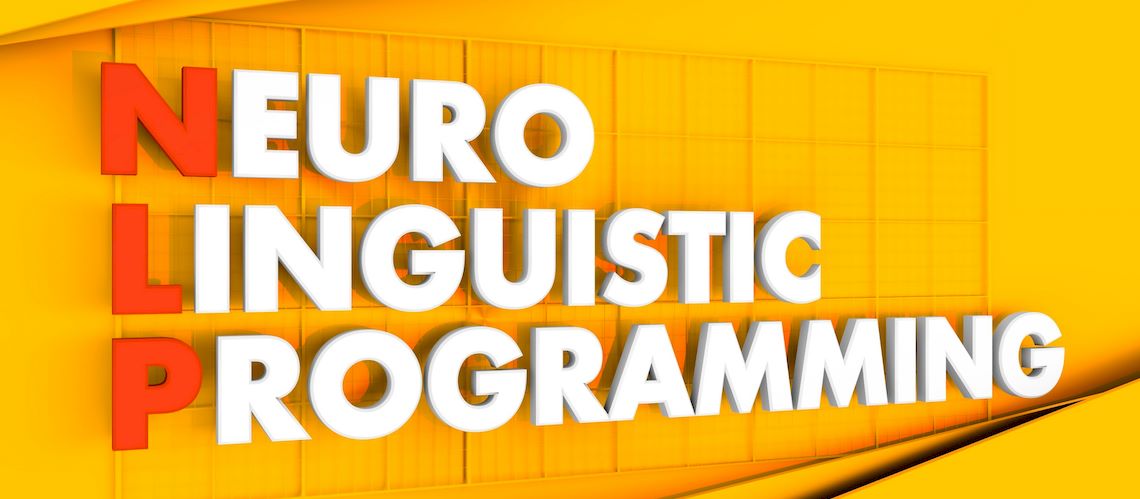Within the CORE Compass Framework, Neuro-Linguistic Programming (NLP) serves as a transformative psychological tool for fostering Curiosity and Cognitive Growth. Rooted in the study of human behavior, communication, and thought patterns, NLP empowers individuals to cultivate mental resilience, enhance interpersonal skills, and achieve personal growth (Grinder & Bandler, 1976; Bandler & Grinder, 1979). Its capacity to support balanced mental health and promote positive thinking makes it an essential modality for achieving a fulfilling and harmonious life (Andreas, Faulkner & Andreas, 1994).
Application in the CORE Compass
Curiosity and Cognitive Growth
NLP is instrumental in fostering intellectual curiosity and cognitive development. By examining and altering limiting beliefs and thought patterns, individuals can expand their capacity for learning and problem-solving. Techniques such as reframing and modeling help cultivate a mindset geared toward continuous improvement and intellectual curiosity (Dilts, 1998). This aligns seamlessly with the CORE Compass Framework’s emphasis on curiosity as a driver of personal and cognitive growth.
Resilience and Emotional Equilibrium
Emotional resilience and stability are cornerstones of the CORE Compass Framework, and NLP offers practical strategies for achieving these outcomes. Anchoring techniques, for instance, allow individuals to access positive emotional states during challenging situations, while reframing helps reinterpret setbacks as opportunities for growth (O’Connor, 2021). By regulating emotional responses and fostering positive thinking, NLP builds a robust foundation for emotional balance (Wake, Gray & Bourke, 2012).
Operational and Physical Vitality
NLP’s emphasis on cultivating a positive mindset and improving communication directly supports physical and operational vitality. Effective communication reduces stress in personal and professional interactions, fostering better overall well-being (Knight, 2010). Additionally, NLP techniques enhance self-awareness, enabling individuals to align their actions with their goals and maintain energy and focus in their daily lives (Andreas, Faulkner & Andreas, 1994).
Benefits within the CORE Compass
The integration of NLP into the CORE Compass Framework yields significant mental, emotional, and interpersonal benefits, including:
- Improved Communication and Interpersonal Skills: Techniques such as rapport-building and language pattern analysis strengthen connections and foster meaningful relationships (O’Connor, 2021; Knight, 2010).
- Enhanced Emotional Regulation and Stress Management: Anchoring and reframing techniques empower individuals to manage stress effectively and maintain emotional equilibrium (Wake, Gray & Bourke, 2012).
- Increased Self-Awareness and Confidence: NLP promotes introspection and self-awareness, enabling individuals to identify and overcome limiting beliefs (Dilts, 1998).
- Better Goal-Setting and Achievement: By modeling successful behaviors and clarifying objectives, NLP facilitates the creation of actionable plans and the realization of personal and professional goals (Bandler & Grinder, 1979).
How to Integrate NLP in the CORE Compass Framework
- Education: Begin by familiarizing yourself with the fundamental concepts and techniques of NLP. Resources such as NLP: The New Technology of Achievement (Andreas, Faulkner & Andreas, 1994) provide an excellent starting point for understanding its principles and applications.
- Implementation: Apply NLP techniques in your daily life to support cognitive growth and emotional resilience. For example:
- Use anchoring to create and access positive emotional states during high-pressure situations (O’Connor, 2021).
- Practice reframing to reinterpret challenges and setbacks as opportunities for growth (Knight, 2010).
- Build rapport in your interactions to strengthen relationships and foster collaboration (Bandler & Grinder, 1979).
- Monitoring: Track your progress and evaluate the impact of NLP techniques on your mental health, relationships, and productivity. Use practical tools such as:
- Journaling: Maintain a daily or weekly record of your thoughts, progress, and breakthroughs to foster accountability and self-reflection (Wake, Gray & Bourke, 2012).
- Self-Assessments: Regularly assess your emotional resilience, communication skills, and goal achievement to identify areas for further growth (Knight, 2010).
- Feedback from Others: Seek input from trusted peers or coaches to gain an external perspective on your progress and areas for improvement (Dilts, 1998).
Conclusion
Neuro-Linguistic Programming is a powerful and versatile modality within the CORE Compass Framework. By integrating NLP techniques into your daily routine, you can achieve cognitive growth, emotional resilience, and interpersonal harmony. As a cornerstone of the CORE Compass, NLP empowers individuals to navigate life with curiosity, vitality, and balance, fostering a deeper sense of fulfillment and well-being (Tosey & Mathison, 2009).
References
Andreas, S., Faulkner, C. & Andreas, S. (1994) NLP: The New Technology of Achievement. New York: Quill.
Bandler, L.C. (1985) Solutions: Practical and Effective Antidotes for Sexual and Relationship Problems. San Rafael, Calif.: FuturePace.
Bandler, R. & Grinder, J. (1979) Frogs into Princes: Neuro-Linguistic Programming. Moab, Utah: Real People Press.
Dilts, R.B. (1998) Modeling with NLP. Capitola, Calif.: Meta Publications.
Einspruch, E.L. & Forman, B.D. (1985) ‘Observations concerning research literature on neuro-linguistic programming’, Journal of Counseling Psychology, 32(4), pp. 589–596.
Grinder, J. & Bandler, R. (1976) The Structure of Magic. Palo Alto, Calif.: Science and Behavior Books.
Knight, S. (2010) NLP at Work: The Essence of Excellence. London: Quercus.
O’Connor, J. (2021) NLP Workbook: A Practical Guide to Achieving the Results You Want. London: Red Wheel/Weiser.
Sturt, J., Ali, S., Robertson, W., Metcalfe, D., Grove, A. & Gage, H. (2012) ‘Neurolinguistic programming: a systematic review of the effects on health outcomes’, British Journal of General Practice, 62(604), pp. e757–764.
Tosey, P. & Mathison, J. (2009) Neuro-Linguistic Programming: A Critical Appreciation for Managers and Developers. London: Palgrave Macmillan.
Wake, L., Gray, R.M. & Bourke, F.S. (2012) The Clinical Effectiveness of Neurolinguistic Programming: A Critical Appraisal. London: Routledge.




